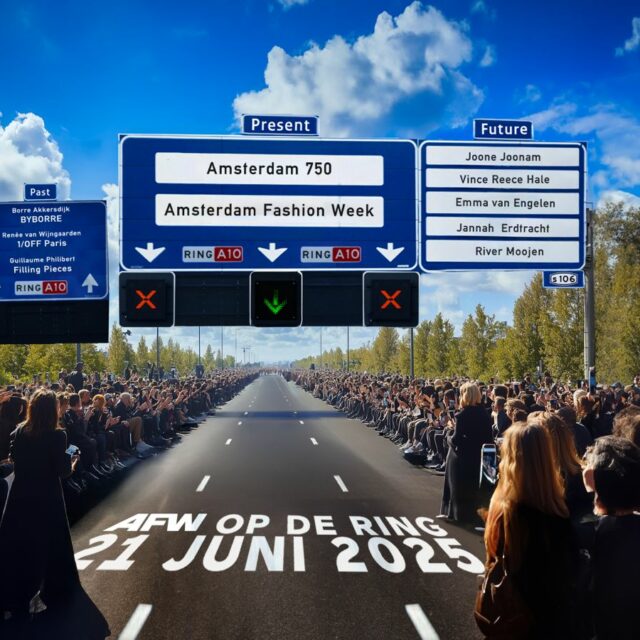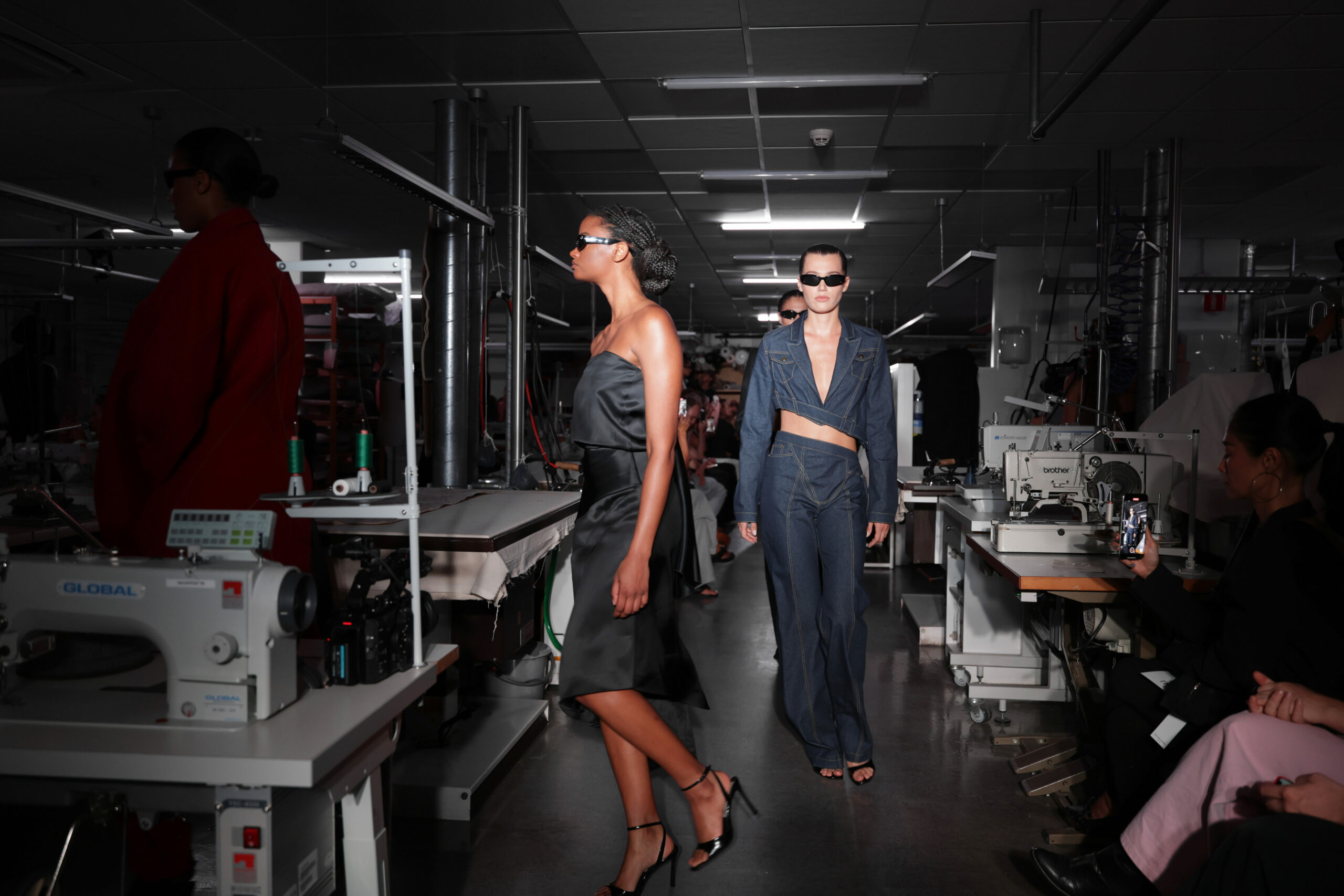AFW Industry Talk: Sustainability & Innovation
Panel:
Samuel de Goede
Samuel de Goede is the Design Director at BYBORRE, a fashion brand specializing in textile development. His innovative techniques are used by brands like Adidas and The North Face.
Randy van Essen
Randy van Essen is the Chief Marketing Officer at O’Neill. Besides that, he is the founder of ‘Make Brands Grow’, a consultancy firm that specializes in brand positioning challenges.
Adriana Galijasevic
Adriana Galijasevic is the Denim & Sustainability Expert at G-Star RAW, a brand that launched the ‘Most Sustainable Jeans Ever’, and is known for its cutting-edge techniques and applications of denim.
Amber Slooten
Amber Slooten is the Co-Founder and Creative Director at the Fabricant, a brand set to disrupt the fashion industry by being the very first Digital Fashion House; specialised in photo-real 3D fashion design and animation.
Topics:
Changing the fashion industry
Amber: “The most important thing is that we should stop buying physical clothes and start wearing digital clothes. Right now, we are all expressing our lives digitally, our profiles are extensions of ourselves. So, we figured we could also express ourselves with clothing digitally.”
Randy: “We have an ocean mission with O’Neill and put ourselves out there to make the world more sustainable. We have been doing this before sustainability was an actual buzzword.”
Adriana: “Even before I joined G-Star, I was trying to get into the cradle to cradle theory and how this can apply to the fashion industry. This inspired me as a designer to live by these principles and change my ways of designing and enable this cycle within the industry. I joined G-Star nine years ago, because of its innovative approach and with the goal to make it more sustainable.”
Digital Innovation
Amber: “We have two parts of our business. We help brands to be more sustainable and create digital campaigns for them. We create new narratives within the industry. The second part of our business is creating a space for people to express themselves digitally and endlessly. We’re building it right now and want to see how far we can take this. We have the idea that brands could plug in their collection digitally on this platform.”
Producing on demand
Samuel: “Why make a bunch and throw away the leftovers. We should make less and tailor to what people are looking for. I think our brand is finally gaining attention and other brands are catching up. We work from the yarn up, give it function and make it into a garment. That’s how are product on demand system works.”
Trial and error
Randy: “We start with trial capsule collections. That’s also how O’Neill Blue started. We take an item in our winter collection and see how far we can integrate sustainability into a fashionable functionable winter jacket. Then we see how we can make that jacket affordable again. It’s a process of trial and error.”
Collaboration
Adriana: “We can’t change the world just by ourselves. That’s why when we created our sustainability lab, we shared our technology with others. We have made it open access our ingredients and our supply chain. Only when we collaborate, we can make a real impact.”
Amber: “For is it’s important to keep that openminded approach of sharing and working together. Open source is the future. We as fashion brands have been operating as islands and I think it’s so arrogant. We have to share knowledge, it’s essential.”
Samuel: “One of the things that is holding the fashion industry back is its speed. It takes time to collaborate, and there is no time because seasons move so fast. It’s not the way it should be but it’s the reality of our current industry.”
Slowing down
Samuel: “You could argue we are moving out of the old system of fashion. It’s clear that a lot is unsure and people are trying new avenues and finding ways to slow down. I think it’s the only way to make the industry more sustainable. The only other option is to just quit.”
Randy: “I think one of the things that will make a difference is adopting this mindset that wearing something more than once is okay. We need to start consuming less. For instance, our wetsuits are not sustainable. There are no methods to make them so, but we try to build them in a way so they last multiple generations.”
Different time and space
Adriana: “Our sustainability department started in 2006. It was the moment G-Star and simultaneously its footprint was getting bigger. We were extremely early with this. Now when companies start making their mark, it’s inevitable to tiptoe around sustainability. It’s a necessity to think about it.”
Social Sustainability
Randy: “We are part of the BSEI group to make sure that the companies we work with are transparent. The behind the scenes of a brand is as important as the message it sends out.
Adriana: “Social used to come before environmental. That’s been at the basis of G-Star. We have a really long-standing relationship with our supply chain. Thanks to those longstanding relationships we are able to be transparent and show where everything comes from. To become transparent, you have to be loyal to your partners.”




